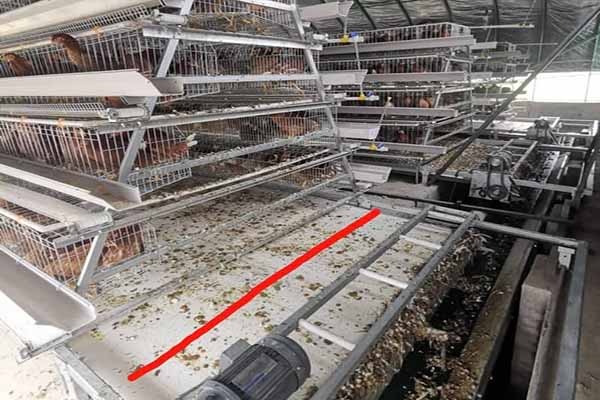Kenya Chicken Farm Manure Treatment Automation Solution: Revolutionizing Sustainable Agriculture
Time : 2025-06-26
The poultry industry in Kenya has been witnessing significant growth, with chicken farms becoming a vital component of the agricultural sector. Among the numerous challenges faced by chicken farmers, manure treatment stands out as one of the most crucial concerns. The Kenyan government has been advocating for sustainable agriculture practices to ensure environmental protection and economic growth. In this context, automation solutions for manure treatment have emerged as a game-changer for chicken farmers in Kenya. This article explores the concept of an automated manure treatment system and its potential to revolutionize the poultry industry in the region.
Introduction to Chicken Farm Manure Treatment Automation Solution
Chicken manure is a valuable resource for organic fertilizers, but it also poses several challenges when not treated properly. The conventional method of manure treatment involves manual labor, which is time-consuming, inefficient, and environmentally harmful. An automated manure treatment system, on the other hand, aims to address these issues by integrating advanced technologies to streamline the process, reduce labor costs, and minimize environmental impact.
The Need for an Automated Manure Treatment Solution in Kenya
Kenya’s poultry industry has been experiencing rapid growth, with the demand for chicken meat and eggs soaring. This has led to an increase in the number of chicken farms, resulting in a significant amount of manure generated daily. Here are some of the key reasons why an automated manure treatment solution is necessary:
– Environmental Concerns: Improper disposal of chicken manure can lead to environmental degradation, including air and water pollution. An automated system helps minimize these adverse effects.
– Health Risks: Chicken manure contains harmful pathogens and parasites that can pose a threat to public health. Effective treatment reduces the risk of disease transmission.
– Economic Benefits: The efficient treatment of manure can enhance the value of the product, making it more marketable as organic fertilizer.
Components of an Automated Manure Treatment System
An automated manure treatment system typically consists of the following components:
– Collection System: This involves the design of a well-structured collection system that effectively collects manure from the chicken farm. It can be gravity-fed, vacuum, or scraper systems, depending on the farm layout and size.
– Composting Process: The collected manure is then processed through a composting unit. Advanced composting methods like in-vessel composting and aerated static pile composting are known for their efficiency.
– Dewatering and Drying System: This component is responsible for removing excess water and drying the compost, which increases its bulk density and makes it easier to handle and store.
– Packing and Storage: The final compost product is packed and stored in appropriate containers for easy distribution to customers.
– Control System: An automated system requires a sophisticated control system to manage all the components and ensure optimal performance.
Benefits of an Automated Manure Treatment System
Implementing an automated manure treatment system in chicken farms in Kenya offers several benefits:
– Efficiency: Automation reduces labor requirements and ensures a more efficient process.
– Environmental Protection: It helps in minimizing the environmental impact of chicken manure by reducing pollution and waste.
– Cost-Effectiveness: The long-term benefits of an automated system can lead to significant cost savings for chicken farmers.
– Quality Control: Automation allows for better monitoring and control of the composting process, ensuring high-quality final products.
Case Studies
Numerous case studies have shown the success of automated manure treatment systems in the poultry industry. For instance, the Kenya Agricultural Research Institute (KARI) has been working on developing and implementing automated manure treatment technologies to benefit local chicken farmers.
Conclusion
The adoption of an automated manure treatment solution in chicken farms in Kenya represents a significant step towards sustainable agriculture. By integrating advanced technologies and best practices, the poultry industry can minimize environmental impact, enhance public health, and achieve economic benefits. It is essential for chicken farmers and stakeholders in the poultry industry to embrace these innovative solutions and contribute to the overall development of the sector.












